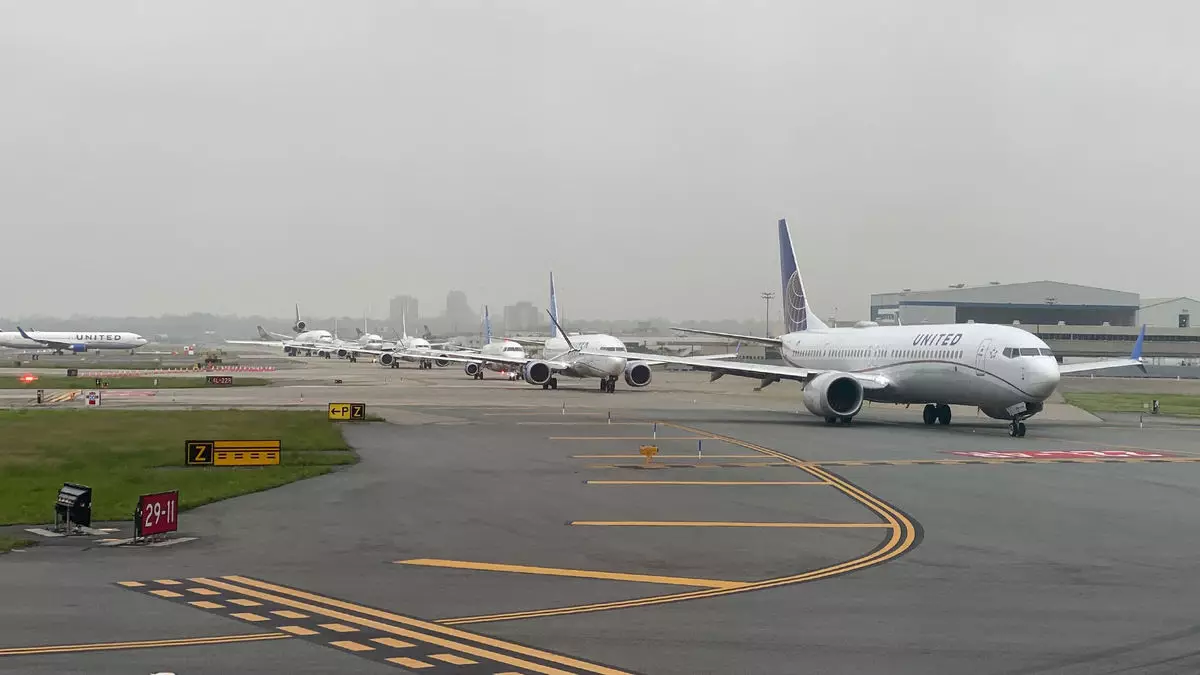In recent months, travel to and from Newark Airport (EWR) has become a hot topic among travel advisors and their clients. Flight cancellations, delays, and operational cutbacks fueled by air traffic control issues have prompted a mix of anxiety and adaptation for many. From discussions at sporting events to conversations at work, the ripple effect of Newark’s instability has permeated daily life, leading seasoned travel professionals to rethink their strategies. One significant example is the experience of Rick Ardis, owner of Ardis Travel in East Rutherford, New Jersey, who wisely altered his travel plans to avoid potential disruptions.
Ardis’s choice to drive over 70 miles to Lehigh Valley Airport (ABE) reflects a growing trend among travel advisors who are keenly attuned to the changing dynamics of air travel. As United Airlines announced cuts to multiple routes including high-frequent ones like Newark to Denver, Ardis’s proactive initiative enabled him to avoid the fallout—his original flight was canceled after he made the switch. Such adjustments highlight the agility and foresight required in today’s travel landscape.
The Role of Travel Advisors in Crisis Management
Travel advisors have emerged as indispensable navigators during turmoil, not merely booking flights but serving as critical resources for information and reassurance. Parri Mahan, an independent advisor from Freehold, has noted an uptick in client inquiries regarding Newark’s operational status. It’s clear that clients seek guidance, and advisors must remain vigilant, watching for developments that could impact travel plans.
Interestingly, despite the chaos, many clients appear reluctant to abandon Newark in favor of alternate airports such as LaGuardia, JFK, or Philadelphia. The convenience factor remains a strong motivator; traffic and accessibility issues often outweigh the concerns surrounding potential cancellations. This speaks volumes about customer sentiment, where the familiarity of a home airport is pitted against the unknown hassle of other terminals.
Operational Changes and Their Impact
April’s air traffic control outage at the Philadelphia Terminal Radar Approach Control office served as a catalyst for a turbulent few weeks at Newark. Following this event, the Federal Aviation Administration (FAA) stepped in, imposing strict caps on arrivals and departures—a move designed to stabilize operations. Yet, these restrictions further compounded the existing turbulence, leading to significant schedule changes.
United’s voluntary reduction of 35 daily operations showcases the extent to which airlines are willing to adapt amid uncertainty. For travelers, diminished flight frequencies can provide a layer of predictability; however, those who’ve pre-booked flights must contend with the risk of abrupt cancellations. The majority of United’s oversights have affected domestic routes, allowing international travel to remain relatively stable. This unique distinction underscores the complexity of current air travel dynamics where international routes, unlike domestic ones, face less modification.
Personalized Solutions for Concerned Clients
As the turbulence continued, travel advisors proved their worth by providing personalized solutions. Mahan shared that she had to reassure clients flying to Nice, France, about their scheduled itinerary, emphasizing the stability of transatlantic operations. The knowledge of EU regulations requiring compensation for cancellations became a vital aspect of her advisory role. This displays how knowledgeable advisors add an invaluable layer of protection for anxious clients.
Ardis’s quick actions to get a client’s canceled flight rebooked onto a nonstop journey, coupled with a first-class upgrade and travel credit, exemplify the proactive, customer-centric approach that sets excellent advisors apart. By taking charge of these situations, advisors can transform potential travel nightmares into smooth sailing, thus reinforcing trust and reliability in their professional capacity.
Shifting Trends and Behavioral Changes
While many clients remain steadfast in their preference for Newark, there is also a significant segment opting for nearby airports to sidestep the chaos. Travel preferences are evolving as some clients prioritize convenience over loyalty to a single airport. Peter Vlitas of Internova Travel Group noted this emerging trend, indicating that time-sensitive travelers are particularly affected by Newark’s operational instability. For such clients, options like Philadelphia are increasingly appealing, especially in the face of ongoing uncertainty at Newark.
Melissa Sanchez, another prominent travel advisor, experienced firsthand how anxiety can drive clients to seek alternatives. With eyes peeled for United’s waivers allowing easy itinerary changes, clients are poised to capitalize on shifting conditions, ensuring they are positioned to make the best choices for their upcoming travels.
As Newark navigates its turbulent skies, the travel sector continues to adapt, proving that flexibility, communication, and expert guidance are paramount to ensuring a seamless travel experience.


Leave a Reply